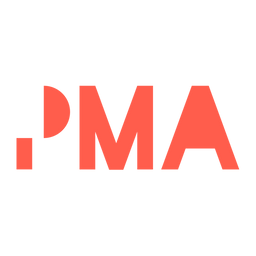In the world of politics, you often hear talk of trying to get more voters into the tent. Well, with competitive intelligence, it's less about getting more people inside, and more about making the proverbial tent that much bigger.
To learn more about creating a culture of competitive intelligence (CI) within your organization and using it as a catalyst for collaboration, Erik Mansur, VP of Product Marketing at Crayon, sat down with Patrick Wall, Head of Competitive Intelligence at Imperva.
In their discussion, they explored a variety of key topics, including:
- The role of cross-functional partners when building competitive intelligence
- Tools and tips for engaging key stakeholders in competitive intelligence
- Using competitive win-loss analysis to learn from your losses
- Proving the need for competitive intelligence
This is not Patrick’s first foray into CI: he began his career in sales engineering, doing stints at Neo4j, Oracle, Cambridge Semantics, and Datawatch before joining Imperva, so Patrick's had competitive intelligence at the front of his mind for quite some time.
Cross-functional partners in building a culture of competitive intelligence
Q: You come from a background in sales engineering. Is talking the talk and walking the walk with a sales rep an advantage in getting sales to adopt competitive intelligence as a discipline?
A: “Sales engineers are the best for knowledge within the organization. They’re the ones talking to the customer. A lot of the time, a customer won't tell the sales rep everything because they don’t want to be sold another solution, but they'll tell the sales engineer so much more about what's going on in their market. I think that's where, as product marketers, we can get a ton of information.
“Product marketers and competitive intelligence need to lean into the sales engineers. I'm on calls with sales engineers all the time because they have such a great impact.”
Q: Who are your other partners when it comes to implementing competitive intelligence in your organization?
A: “Customer success is an awesome partner within competitive intelligence, and it's bilateral – I'm helping customer success by making sure they understand our competition, and they're bringing back nuggets of intelligence from conversations with customers.
“Product managers are another vital resource when it comes to gathering intel on your market. They know a ton about your product, and they know a lot about the competitor's products as well.
"When you have a good product manager, they can help you build up motivation, and say, “This is why we're building this into our product because we see there's a gap in our competitors’ as well.”
“You want to get sales enablement on board too. At Imperva, we have an amazing sales enablement team. Amy McCormick, who runs the org, is awesome. She gets competitive intelligence, and she’s a valuable partner.
"When we do weekly sales enablement sessions, I can be there to talk about how we're using competitive intelligence and building support. People raise their hands and say, “This is helpful. I love this,” so you get this crowd momentum.”
Q: Who has been the toughest nut to crack in terms of getting them to come over to your view of competitive intelligence?
A: “I don't think it's one group in particular, but sometimes change is hard. If someone has relied for years on a certain battle card or certain competitive features, trying to change that can be difficult.
"It's about communicating with your internal teams and showing them why we're making a change. A lot of times people just want to be heard and to understand.”
Tools and tips for engaging all your key stakeholders in competitive intelligence
Q: How do you go about raising awareness of competitive intelligence and incorporating it into those other teams’ daily practices?
A: “Having those weekly sales enablement sessions has been great. Being involved right from the start is key too, so when a new rep comes in, that intel is already right in front of them.
“Slack is a great tool too. One of the first things I realized when I came into Imperva was that we didn’t have a competitive intelligence Slack channel, so I created one. Now it's one of the most popular channels, and it’s great because I'm not the only one answering questions. I'm crowdsourcing intel, which is so much better.
“The Slack channel is helping people become knowledge experts as well. If a question goes up in the chat, I can tag someone who knows the product very well because they’ll be able to give a great answer. It boosts them by putting them in the company spotlight.”
Q: What other types of tools are you using to engage with a broader group of stakeholders with CI? Have you been able to get CI into your CRM and sales enablement tools?
“Absolutely. One of the first things I said when I came in is that I want competitive intelligence to be wherever you are. If you're in Salesforce, I want you to see competitor information there. If you're in Guru, which is our sales content platform, I want you to find CI content there.
“That being said, having a central place for competitor intelligence is key because everyone has so much on their plates; if they can go to one place and see the most up-to-date intelligence, it hands-down shows the value of the competitive intelligence program.”
Q: What methods do you use to gauge people's understanding of the messaging that you're putting out?
“I use team calls and I go on management calls to find out what people are asking for. That gives me a gauge of whether or not people understand what I’m putting out there. If they’re asking about a certain point a lot, maybe I need to do another enablement session. Or, if a lot of requests are coming in about a certain competitor, maybe it's time to go out and build some intelligence on them.
“The understanding is always gonna be on a curve too. There will be some reps who don't look at the intel and just do their thing, the majority of reps will have about 80% knowledge, and then there are some reps who are almost competitive experts themselves. It's about understanding where the majority of the individuals are.
“The ones that I want to get through to are those with only a minimal understanding because competition-wise, you're only as good as your worst rep.
"Normally they're actually great reps, but they just haven't grasped the competitive piece, and that's why I'm constantly in their face talking about intelligence so that I get them further up the bell curve.”
Q: We've been talking a little bit about one-to-one communication. Let’s look at one-to-many. How empowered have you felt to get up in front of the entire organization and talk about your competitors and what they’re up to, and has that helped in building a company-wide culture of competitive intelligence?
A: “Yeah, and I think when you do this, whether it's in a kickoff or a company meeting, you need to understand that there are different levels of expertise in intelligence.
"Sales for example, usually have a pretty high level of awareness, but then there are other parts of the organization that may not know our competitors very well. I think giving everyone a market overview or a refresh is great because it gets them all on the same page about why we’re taking certain actions.”
Q: In a company meeting, where do you slot in, and where do you feel is the right place to either capture people's attention or fit into the context of the conversation?
A: “I think it varies by company. I've been in companies where I would say my piece before the kickoff, so everyone has some competitive intelligence to get them ready for the main event.
“There was another time when I was up in the last slot on day three and everyone was like, “Oh, my God, I've been here for how long?”
"They just wanted to get out and have cocktails with their friends, so I did competitive intel cocktails – what's better than having a drink and talking about your competitors? It was one of the best kickoffs I've ever done, and it paid dividends because everyone relaxed, we had a great conversation, and people reached out again later on.”
Using competitive win-loss analysis to learn from your losses
Q: As competitive intelligence professionals, we talk a lot about the notion of competitive win-loss analysis and learning from your successes and failures. Are they good data points for you?
“Absolutely. I think some of the best data points in CI are from wins and losses. You might lose to a competitor, and I think understanding why is so important.
“Learning from your losses is probably one of the most important things you can do as a business, but It’s a difficult conversation to have because no one wants to talk about losses – they’re not something people are thrilled about.”
Q: So how have you had those difficult conversations?
A: “I think it's about building trust with your sales, being able to say, “I'm here for you” and making sure that whatever they tell you stays between you and them – it doesn't go across the whole organization.”
Q: How did you get your leadership to buy into competitive win-loss analysis as a method to build CI culture?
A: “I'm lucky because I have an awesome CMO, Julian, and an awesome CRO, Scott. They get the value of CI because they realize that this is how we're gonna get better. Having two amazing executives to help you to build out CI culture is powerful because they can yell, “Here's the budget. Let's make sure it gets done.”

Q: Let's say for the sake of argument, you were in a different situation, and those two guys didn't understand your point of view. How would you start to influence those leaders if they weren't bought in from the get-go?
A: “I have had that in other organizations, where the leadership were like, “They're my reps, why are you going to talk to them?”
"I think it’s all about showing them the value: I'm going to take a little time out of their day to have conversations about why they win and why they lose, so then we can make it repeatable.”
Proving the need for competitive intel, even when the wolf isn’t at your door (yet)
Q: Is there a way to create a culture of competitive intelligence without existential threats?
A: “Yeah, and it does happen sometimes. Some industries are hyper-competitive, and in some industries, there are not so many competitors.
“Actually, a company I worked for a while ago thought they didn’t have any competition so they didn’t need to focus on CI at all. I had to show them, look, we might be OK for now, but in two years we’re going to have a ton of competition and we need to get ahead of that.”
Q: So you're trying to get people to see a future where the little guys get bigger and suddenly they're a problem?
A: “Absolutely, and sometimes it's not even just the little guys getting big. Sometimes it’s the bigger guys who might decide to muscle in on your market.
“You don't know when the competition is going to show up so you always have to plan for the worst and hope for the best.
"You have to look at the market and figure out who your friends are, who your enemies are, and who could be an enemy two years down the road. You need to identify those people who are going to be a problem if they wake up one day and decide they want to do what you're doing.”
How to improve competitive intelligence
Into the Fray: The Competitive Intelligence Podcast
Competitive intelligence is a fundamental part of product marketing and the wider business landscape. Therefore, you need to know the essentials inside and out.
In the Into the Fray: The Competitive Intelligence Podcast, host Erik Mansur, VP of Product Marketing at Crayon, explores a variety of key topics with product marketers who’ve refined the competitive intelligence function at their respective organizations, with discussions including:
🔮 The past, present, and future of competitive intelligence
🧱 Building credibility as the owner of a CI program
📝 Short and long-term planning
💰 The ROI of competitive intelligence
Competitive Intelligence Certified
Competitive Intelligence Certified has been built to help product marketers enhance their knowledge of pivotal areas of CI.
Hosted by Alex McDonnell, Market Intelligence Lead at Airtable, Competitive Intelligence Certified will teach you how to complete essentials, including how to:
✅ Build a tech stack for competitive intel
✅ Conduct win/loss and primary research
✅ Visualize your competitive position with a market map
✅ Deliver sales and customer success to deliver crisp competitive positioning
✅ Strategically bring CI to the table in strategy and product decisions

